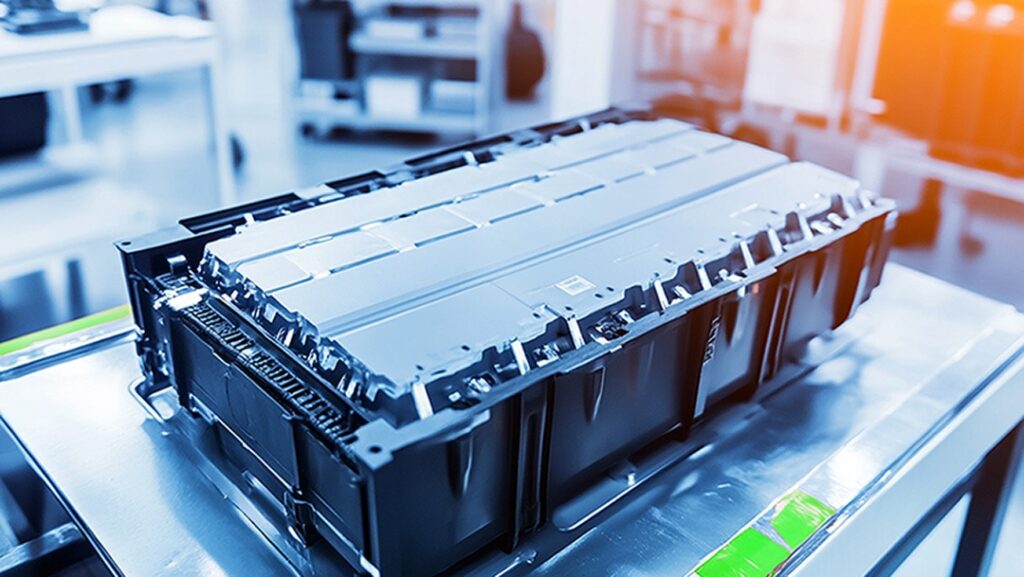EVs are posited to be the future of transportation. At the same time, the industry is facing numerous challenges: used batteries disposal issues, efficient battery categorisation and dismantling, safe transportation, transparent and secure exchange of information between battery supply chain participants, and many more. Some of these issues are being addressed, while others remain unsolved. But are you aware of the projects aimed at making the industry more sustainable and efficient?
In this article, we cover the leading industry projects & associations that address the most pressing challenges in the EV battery industry.
This is a family of the EU projects that are all focused on the Batteries 2030+ roadmap implementation. The roadmap aims to create sustainable and efficient batteries of the future – durable, safe, sustainable, and affordable batteries for use in real applications. The research within Batteries 2030+ is based on three main areas: accelerated discovery of battery interfaces and materials, integration of smart functionalities, and cross-cutting areas (manufacturability and recyclability).
Eurobat is an association of the European automotive and industrial battery manufacturers. EUROBAT is involved in policy advocacy around sustainable battery production, second-life usage, and recycling to meet the EU’s goals for a circular economy.
The BATRAW project seeks to develop new technological processes for the recovery of Critical Raw Materials (CRMs) contained in electric vehicle batteries.
RECHARGE is a European industry association that was founded in 1998. RECHARGE promotes advanced rechargeable and lithium-ion batteries. It represents stakeholders in the battery value chain, including suppliers of primary and secondary raw materials to battery manufacturers, rechargeable battery manufacturers, OEMs, logistics partners, battery recyclers and others.
The European Battery Alliance (EBA) was launched in 2017 by the European Commission, EU countries, industry, and the scientific community and aims to make Europe a global leader in sustainable battery production and use. Today, EBA250 is a community which brings together more than 800 industrial and innovation actors, from mining to recycling.
The Global Battery Alliance (GBA)
This public-private partnership promotes sustainable battery value chains. The GBA primary focus areas are: Battery Passports, critical raw materials for batteries and energy access and circularity.
As part of its roadmap, the GBA initiated Battery Passport pilots, completing the first in 2023 and launching a second wave in June 2024. This second wave includes 11 pilot consortia, focusing on environmental, social, and governance (ESG) aspects as a way to support the development of standardized and comparable battery passports.
The alliance unites over 170 businesses, including governments, OEMs, battery manufacturers, and technology providers.
Led by the Pacific Northwest National Laboratory (PNNL) in the U.S., Battery 500 aims to develop batteries with higher energy densities for electric vehicles. The focus is on lithium-metal battery research, which could lead to lighter and more efficient batteries with longer lifespans.
Polestar Project 0 aims to create a climate-neutral car by 2030, working closely with battery recycling and sustainable material sourcing partners to ensure a circular lifecycle for batteries. Until 2025, the research focus of the project is actively identifying and establishing collaborations with partners who can help innovate new solutions that will help to eliminate carbon emissions.
Cobalt for Development focuses on the responsible sourcing and recycling of cobalt, a critical material in lithium-ion batteries. The project works to ensure ethical practices in the battery supply chain while promoting the recycling of battery materials.
RecyLiCo is advancing closed-loop recycling of lithium-ion batteries, focusing on recovering valuable battery materials such as cobalt, lithium, and manganese.
LIBERTY (Lithium-Ion Battery Recycling Technology)
The LIBERTY project focuses on improving lithium-ion battery recycling technologies, with the goal of recovering high-purity materials and integrating them back into new battery production. It is part of the European Union’s efforts to create a circular economy for batteries.
Rechargeable Battery Association (PRBA)
The PRBA focused on the responsible management of rechargeable batteries, including innovations in recycling and the second life of lithium-ion batteries.
NAATBatt (National Alliance for Advanced Technology Batteries)
The US-based consortium focuses on advanced battery technology, including lithium-ion batteries, and promotes innovation in battery recycling, second-life battery applications, and the development of sustainable energy storage technologies.
The project brings together experts from leading organizations along the entire battery value chain to develop a timely and holistic guidance on all relevant aspects of a Digital Battery Passport.
At Recirculate, we are addressing challenges associated with the second life of batteries, including battery characterisation, dismantling, transportation as well as communication of the key battery components data between all supply chain participants using Battery Passports and creating a transparent environment for trustable and secure exchange of information about used batteries and batteries materials.
In our next articles, we will cover some of the most interesting partnerships in the battery industry. Subscribe to our social media and stay ahead of the industry events and important trends!
